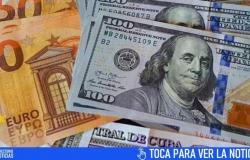In the midst of the social engineering project that Argentina is going through, of which the overwhelming majority does not know how or by whom it is carried out, we have witnessed – once again – the spectacle of the president at Luna Park presenting his book. Without elaborating on the psychological depth that overwhelms the creature (he defined himself as such on the spot), he has made it clear once again that there are two antagonistic models: capitalism and socialism. (this one with various variants: some certainly failed and others not yet executed).

Although for this opinion the speech is full of inconsistencies and rehashes (there are more than 5 pages of the book verbatim plagiarized, with the publisher having to modify the CV as a liar), its statements show an astonishing disconnection with the economy. The same disconnection that he maintains with reality: outside his theoretical world there is an economic, social and political world, which he clearly seems not to be seeing. I hope I can see it in time; for him and for us.
I stop at some passages from someone who claims to be an expert in economic growth, ignoring the brutal destruction of capital (physical and human) that we currently endure, with numbers never seen in a country in the north of Argentina. Even so, he has not yet managed to achieve the central objectives of his administration: pay the foreign debt and transfer the country’s main public assets, which we said in these pages at the beginning of his administration.
It states that the countries that grow the most are those with the most economic freedom, but in reality China and Vietnam (supposedly communist) are the ones that have grown the most on average in the last 15 years. By the way, among the main ones with the most economic freedom (www.heritage.org) are Switzerland, Singapore and Ireland. Although the three are considered tax havens where hundreds of billions of dollars extracted from the real economy and also obtained illegally are hidden and laundered, the first two maintain a strong presence of the State in economic management.
He stated that the market is a process of social cooperation where property rights are voluntarily exchanged and that this is frustrated when the State intervenes. Not even the original theorists of the liberal economic model (Adam Smith and David Ricardo) were encouraged to do so. Much less the economists of this tendency who have built liberal theory in the last 150 years. On the contrary, Adam Smith questions parasitic land rents by advocating the imposition of a special tax using the theory of value, work that the president attributed exclusively to Keynes, a liberal English economist who saved capitalism from its cyclical crises after the crash. 1929, a consequence of “letting the market do its thing” that accommodates everything. The risks that, in the face of recurring systemic crises, people opt for triumphant socialism in the USSR and other countries, led the British Crown to impose on Keynes (awarded the title of Lord) the task of finding a solution. to the danger that was coming.
The solution was for the State to intervene in recessionary cycles by boosting demand. This was applied in Europe and the USA. The president hates Keynes and believes that the market finds its equilibrium point by interacting freely. For example, it is possible that whoever reads this note agrees on the equilibrium price with the serene dairy company that holds 88% of the market, or that a rural laborer agrees on the price and working conditions with the boss without any intervention from third parties. ; or better yet, that by stopping buying steel from those who control more than 80% of the market, prices will drop because the smaller company that sells cheaper (by magic) will increase its sales, harming the largest by making it lower its prices.
The reasoning is childish and ignorant, typical of a teenager. Monopolies are encouraged to be considered beneficial to society. with an example: in a race of 20, 1 wins and the others lose, why should we help them, why do social justice with them?
Beyond individualism and the extreme dehumanization that this idea entails, it was one of the main theorists of liberalism, John Stuart Mill in his work “Principles of Political Economy” (1948) who stated that the general principle of social justice should be respected. among high-income homeowners.
Its main enemy – socialism – headed by Marx, (very few studied it in depth) stands out for having discovered the basic laws of the accumulation of capital permanently and its concentration in a few hands. This is the real terror of his opponents, given that he hardly wrote about socialism and communism. For this reason, it is studied in depth in the elite universities of the West, where those who will be political and business leaders are trained.
But the president surely doesn’t know that. He also avoids explaining them because the perfect market generated that 8 mega-millionaires have the same capital as 3.3 billion people.
It seems that the market does not work as the president thinks, that with his extreme policies he will cause a return to the state financing model of social security and the incentive of aggregate demand; earlier than later.
* Lawyer. Professor at the UNCo Faculty of Economics








